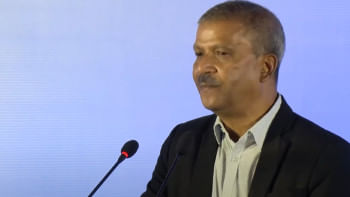Campaign rebuilds confidence in HPV vaccination

When Eigil Rosegar Poulsen first heard about the controversy over the human papilloma virus (HPV) vaccination in Denmark, he became quite upset. Still, the debate sparked a desire to share his story.
In 2010 Eigil lost his wife, Trine, to cervical cancer — a disease caused by the HPV virus — leaving him to raise their three daughters alone. Though the World Health Organisation (WHO)-recommended vaccine against the most common types of the virus was only introduced in Denmark's child vaccination schedule in 2009, far too late for his wife to benefit, Eigil is a strong advocate for vaccination.
"It's fantastic that you can manage a disease as serious as cervical cancer with a vaccine. But it has made me sad to see the debate," he says. "Nobody wants to experience what we have been through. And if that can be avoided with a vaccine, I find it hard to understand why parents would opt out."
WHO recommends the vaccination for all girls aged 9-14 years, as it is the most cost-effective public health measure against cervical cancer, in addition to screening. Each year, an estimated 530,000 women globally contract the disease and 266,000 die of it. Studies show that countries that introduced the vaccine have seen up to 90% reductions in HPV infections in teenage girls and young women.
Understanding parent's concerns
To help understand why so many parents of girls around 12 years of age were postponing vaccination, the Danish Health Authority conducted an analysis in 2016. It found that nearly all parents who doubted whether to vaccinate their daughters had heard stories about the suspected side-effects, primarily through media and online.
New data reveals that less than nine months into the campaign, uptake in the number of vaccines is already increasing. During the past year, twice as many girls – nearly 31,000 girls — have started the HPV vaccination programme compared to just over 15,000 in 2016.
Sharing lessons learned across the European region
Sustaining or rebuilding public trust in vaccines is an ongoing objective of immunisation programmes around the world. Through a WHO-initiated peer group started two years ago, Denmark is sharing lessons learned on HPV with countries, such as Ireland, the Netherlands and Austria.
"Documenting and learning from Denmark's experience is not only important to address the HPV crisis; it is critical to ensuring the success of new vaccines introduced in the future."

 For all latest news, follow The Daily Star's Google News channel.
For all latest news, follow The Daily Star's Google News channel. 



Comments